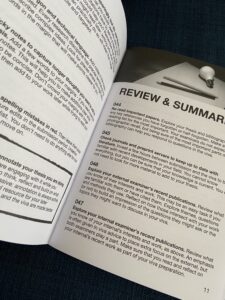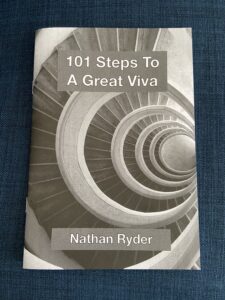The Big Announcement
I’ve written a helpful little guide to the PhD viva and I need your help to make it a reality.
From today until May 31st I’m running a Kickstarter campaign to fund a print run of 101 Steps To A Great Viva. I’ve nurtured this idea for a long time and I’m thrilled to be sharing it now.
If you find Viva Survivors helpful then please take a look at my Kickstarter. I think you’ll like what you find and if you think it’s worth backing there are some great rewards to say thank you:
- Copies of 101 Steps To A Great Viva, including limited earlybird pledges at the time of writing!
- Signed copies of my last book Keep Going – A Viva Survivors Anthology.
- Your name listed in the special thanks section of 101 Steps To A Great Viva.
There are also a limited number of very special pledges to have a 1-2-1 conversation with me over Zoom! We can talk viva prep, advice, respond to particular questions and just go over anything you need for your viva.
Thank you so much for reading and do take a look at 101 Steps To A Great Viva. I’m so happy to share this with you today and I hope it can help you or someone you know. Pledge your support and help me make a print run of 101 Steps To A Great Viva!


